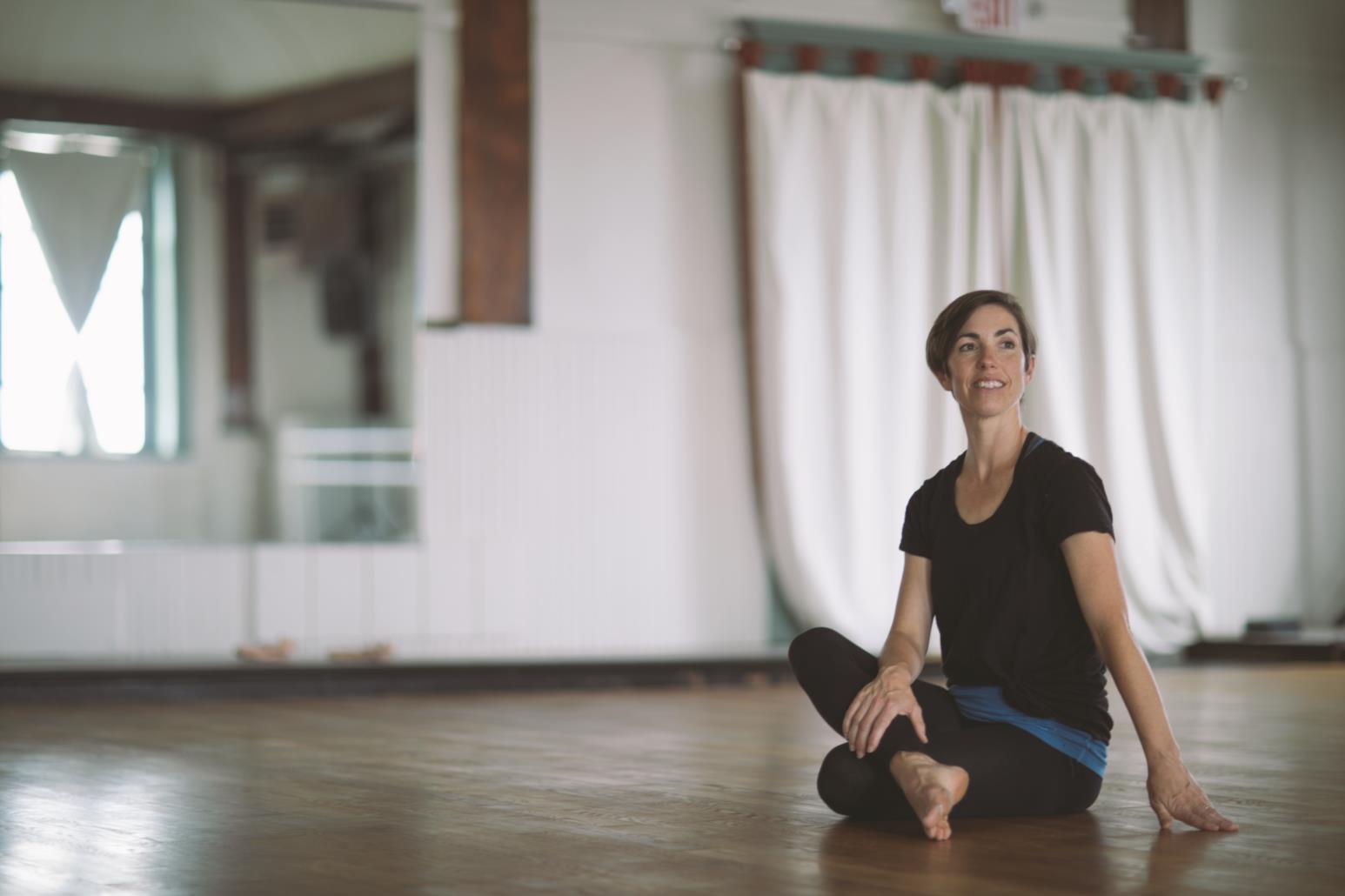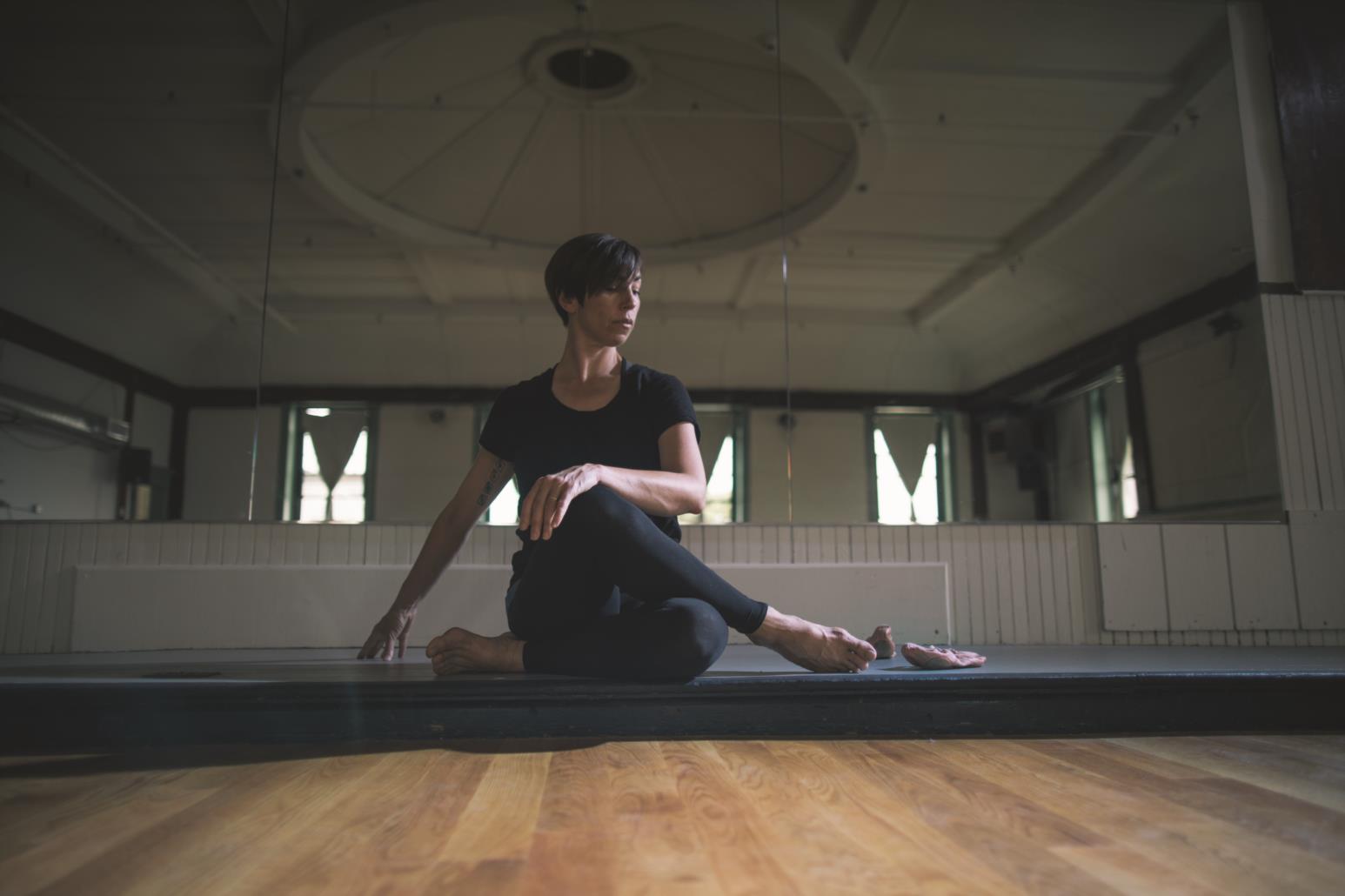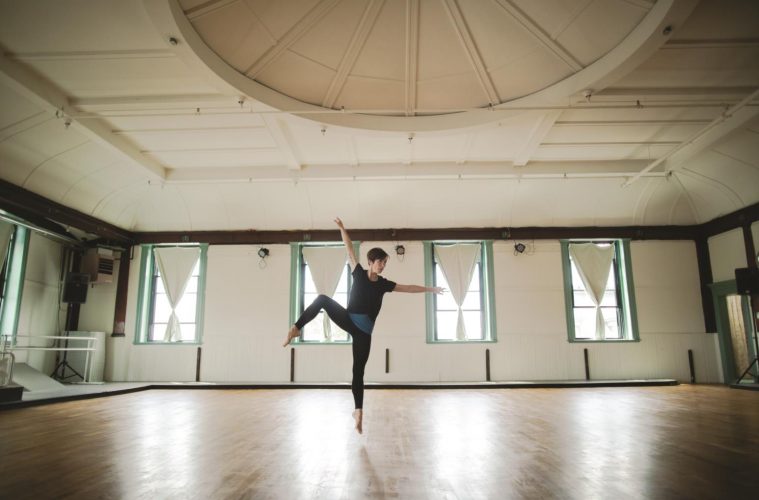 Swift estimates she began dancing at the age of two, though she didn’t study seriously until she was 16. Before college, she practiced only classical ballet. When she enrolled at George Washington University, however, she discovered modern dance and quickly realized that her future was in dance.
After graduating, she did what she had to make life as a dancer work. She danced with a local company and the Washington National Opera, taught classes at The George Washington University and area ballet schools, waitressed, and even worked as a bouncer.
Eventually, she had an opportunity to dance in Europe and moved to Amsterdam. She worked in Europe for five years before returning to the United States. She then settled in Gloucester, where she had spent time as a child and where her parents had relocated. “I just felt like I needed to be where I had some roots,” she says.
For the next 12 years, Swift remained in Gloucester and continued to freelance as a teacher, producer, and performer. But commuting to jobs throughout eastern Massachusetts left her feeling unattached to her new hometown, and she became restless for something new. “It didn’t feel like I was connecting to the community in a way that was satisfying to me,” she says.
She started teaching what she called ecstatic dance—a class focused on improvised movement and nurturing a mind-body connection—in Gloucester. As the class grew, she got the sense that her students were not merely enjoying it, but that the experience was important to them. Swift began to think that she really could use movement practice to make a difference in her community.
Swift estimates she began dancing at the age of two, though she didn’t study seriously until she was 16. Before college, she practiced only classical ballet. When she enrolled at George Washington University, however, she discovered modern dance and quickly realized that her future was in dance.
After graduating, she did what she had to make life as a dancer work. She danced with a local company and the Washington National Opera, taught classes at The George Washington University and area ballet schools, waitressed, and even worked as a bouncer.
Eventually, she had an opportunity to dance in Europe and moved to Amsterdam. She worked in Europe for five years before returning to the United States. She then settled in Gloucester, where she had spent time as a child and where her parents had relocated. “I just felt like I needed to be where I had some roots,” she says.
For the next 12 years, Swift remained in Gloucester and continued to freelance as a teacher, producer, and performer. But commuting to jobs throughout eastern Massachusetts left her feeling unattached to her new hometown, and she became restless for something new. “It didn’t feel like I was connecting to the community in a way that was satisfying to me,” she says.
She started teaching what she called ecstatic dance—a class focused on improvised movement and nurturing a mind-body connection—in Gloucester. As the class grew, she got the sense that her students were not merely enjoying it, but that the experience was important to them. Swift began to think that she really could use movement practice to make a difference in her community.
 Then she had her fortuitous visit to her future studio. On the third floor of a historical brick building, the space features a dramatic domed ceiling and carved wooden trim. Towering windows look out over the rooftops and offer glimpses of Gloucester Harbor. The room where classes are held was originally designed as a public ballroom, Swift says. “This is a public space that was meant for dance,” she says. “And I really want it to manifest.”
She did a few renovations—installing new flooring, adding theatre lighting, hanging mirrors—and MAGMA opened its doors in September 2017. Swift teaches ballet, barre, contemporary, modern, and moving meditation; other local instructors offer classes including hip-hop, Zumba, jazz, and African dance.
“I was just blown away by Sarah,” says Tess Wonson, who teaches an introductory class in Luigi technique jazz at the studio. “It seemed like a great opportunity for me, and I wanted to be a part of it and watch it grow.”
Once a month the studio hosts a morning dance rave, and special weekend events have included mambo lessons, open art shares, and punk night.
Swift is focused on offering dance classes that avoid the judgment and criticism that so often accompany serious dance instruction. She encourages her students not to fixate on achieving external aesthetics, perfect form, or the perfect body. Instead she wants them to focus on inhabiting, challenging, and caring for their bodies and minds.
“I’m really trying to cultivate a different kind of dance class,” she says. “I want people to practice for their whole lives.”
Magma.center
Then she had her fortuitous visit to her future studio. On the third floor of a historical brick building, the space features a dramatic domed ceiling and carved wooden trim. Towering windows look out over the rooftops and offer glimpses of Gloucester Harbor. The room where classes are held was originally designed as a public ballroom, Swift says. “This is a public space that was meant for dance,” she says. “And I really want it to manifest.”
She did a few renovations—installing new flooring, adding theatre lighting, hanging mirrors—and MAGMA opened its doors in September 2017. Swift teaches ballet, barre, contemporary, modern, and moving meditation; other local instructors offer classes including hip-hop, Zumba, jazz, and African dance.
“I was just blown away by Sarah,” says Tess Wonson, who teaches an introductory class in Luigi technique jazz at the studio. “It seemed like a great opportunity for me, and I wanted to be a part of it and watch it grow.”
Once a month the studio hosts a morning dance rave, and special weekend events have included mambo lessons, open art shares, and punk night.
Swift is focused on offering dance classes that avoid the judgment and criticism that so often accompany serious dance instruction. She encourages her students not to fixate on achieving external aesthetics, perfect form, or the perfect body. Instead she wants them to focus on inhabiting, challenging, and caring for their bodies and minds.
“I’m really trying to cultivate a different kind of dance class,” she says. “I want people to practice for their whole lives.”
Magma.center

